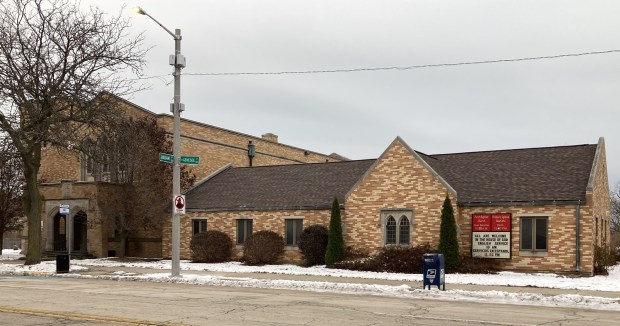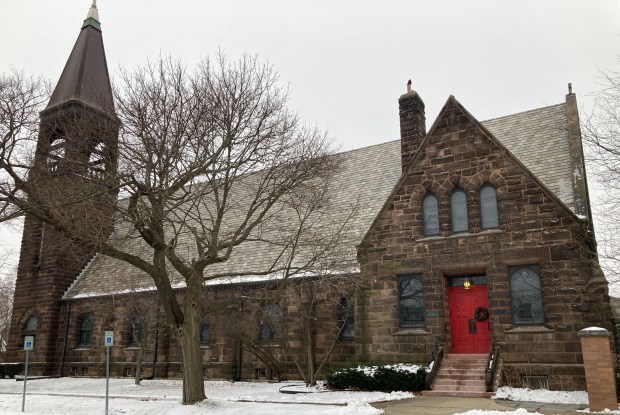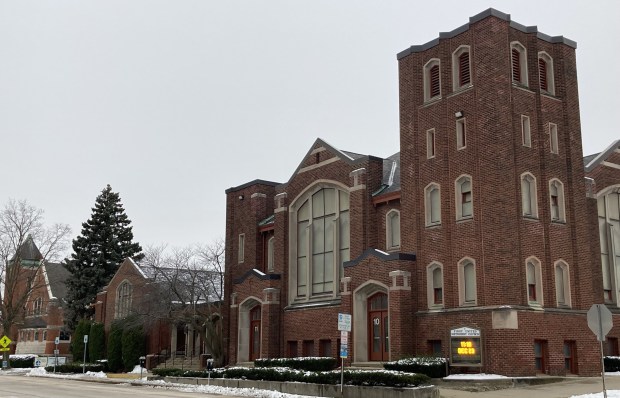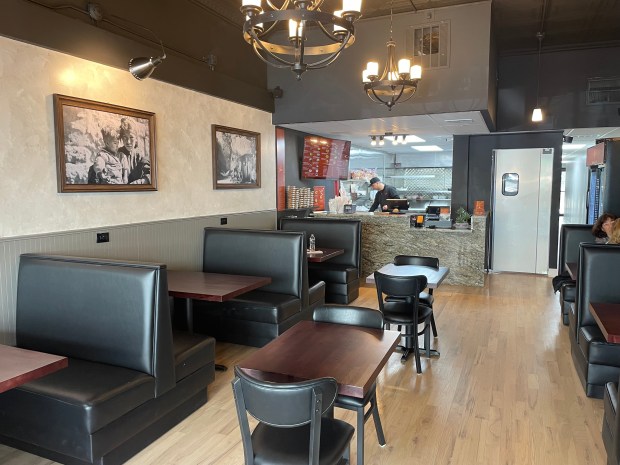Between 1843 and 1849, when Waukegan was still known as Little Fort and the population was in the hundreds, five churches were established.
The quintet of religious institutions remains part of the community and is celebrating Christmas services this holiday season.
Little Fort became the seat of Lake County in 1841, and in 1843 the First Congregational Church — now the United Church of Christ — was established, according to city and Waukegan History Museum records.
Most Blessed Trinity followed a year later in 1844 with Immaculate Conception Church, and by 1849 — the year Little Fort became Waukegan — Christ Episcopal Church, the First Baptist Church and First Methodist were established.
The Rev. Timothy O’Malley, the pastor of Most Blessed Trinity, said in those days streets like Grand Avenue and Belvidere Road were horse paths leading to the harbor. Now a parish consisting of three churches, in 1844 there was one pastor for Galena, Joliet and Waukegan.
“It was the wild, wild west then,” O’Malley said. “It was really the western border then. None of the roads were straight. They were wide enough for two horses. People used them to get their crops to the harbor.”
The city’s original churches plan to celebrate Christmas Wednesday in Waukegan as they have for well over a century, some with a lot of changes and others maintaining traditions like feeding the hungry.
Ty Rohrer, the Waukegan Park District’s manager of cultural arts, a member of the Waukegan Historical Society board and a historian, said Waukegan was growing quickly in the middle of the 19th century. Finding a place to pray was part of building a community.
“People were coming here from Europe and the New England states,” Rohrer said. “They may have had very little, but they had a Bible. They wanted to have a church. They met in people’s homes, and eventually they built their own church. This was very important to the early settlers.”

There will be services at Most Blessed Trinity, and O’Malley said there’s more. The soup kitchen will serve Christmas dinner, where volunteers will serve the patrons. On Dec. 13, gifts were given at the food pantry, located at Holy Family Church.
“We gave out $30,000 in gift cards so people could buy gifts, food or what else they needed,” O’Malley said. “Jesus identified with the poor, and this is important to do on Christmas. He identified with people in need.”
Eileen Peterson is the associate pastor at the First Baptist Church on Genesee Street. Now 83, she said she is the third generation of her family to be part of the congregation. She has seen a lot of change just in her lifetime.
“We have two congregations,” Peterson said. “One is Hispanic, the other is English. We had our Christmas service together on Sunday. The (lead) pastor translated the message so we all understood. It’s wonderful how we love each other as fellow Christians.”

The Rev. Dr. Barbara Morgan, the pastor at Waukegan’s First Methodist Church established in 1849, arrived as the congregation’s spiritual leader 4½ years ago. She said she is aware of the historical background of the church as she prepares to lead Christmas services.
“We are all God’s children,” Morgan said. “It’s part of who we are. This is a very sacred time for all of us.”
Morgan is one of several female pastors leading Waukegan’s oldest churches, along with the Rev. Barbara Brown at Trinity AME Church. Morgan said it was a change from days long ago. Some people are very comfortable with women at the pulpit and others are adjusting.
“It’s a new day,” Morgan said. “God is sending a message. Many of Jesus’ early apostles were women. We’re being called by God. It has not always been easy.”
Immigrants, either from other countries or other parts of the United States, have long played a role in the development of churches in northeast Lake County. O’Malley said initially they were Irish and German, followed by newcomers from Eastern Europe a few decades later.
Trinity AME, founded in 1904, and Shiloh Baptist Church, started in 1917, are predominantly Black churches. The Rev. Charles Ivy, Shiloh’s pastor, said African Americans moved to the northern part of the U.S. from the South as part of the Great Migration starting in the early 1900s.
“They were looking for a better life,” Ivy said. “The South was agricultural and the jobs were picking cotton. There were factories here and the economics were better. So was the education.”
Since Shiloh started, Ivy said the principles were much the same as they are now — “Love the Lord and love each other.” There has long been a food pantry and a soup kitchen for those needing one.
“It’s all centered on love,” Ivy said.
One of Waukegan’s oldest churches — Christ Episcopal founded in 1846 — has one of the its newest pastors. The Rev. Richard Frontjes is the new spiritual leader. He said he sees his role as shepherding the congregation through changing times in organized religion.
“We are sharing a message of hope in spite of the challenges the city, the country and each individual are facing,” Frontjes said.




